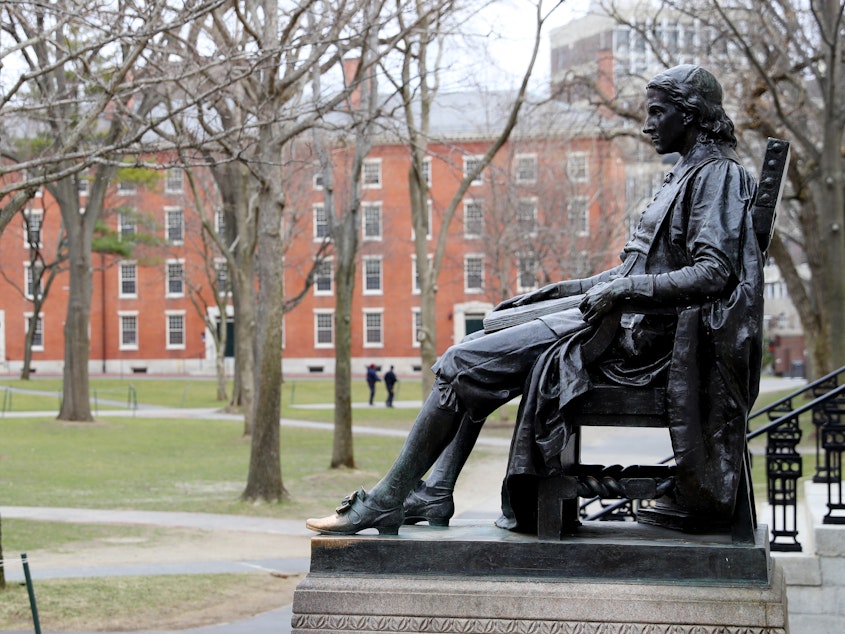Harvard, MIT Sue Immigration Officials Over Rule Blocking Some International Students

Just two days after federal officials barred international students from attending U.S. colleges that go online-only this fall, Harvard University and the Massachusetts Institute of Technology have made their objections clear. They sued the U.S. government in federal court Wednesday, seeking to have the U.S. Immigration Customs And Enforcement policy reversed and declared unlawful.
In the complaint, the schools condemn the agency's "arbitrary and capricious" decision.
The federal policy announced Monday means that college students studying in the U.S. on F-1 visas will not be permitted to stay in the U.S. or reenter the country if their school opted for entirely remote learning in the fall.
According to Harvard and MIT, the policy would effectively strand hundreds of thousands of international students studying in the U.S. and muddy plans for a return to class amid the coronavirus pandemic. They say the move "reflects an effort by the federal government to force universities to reopen in-person classes," regardless of what's best for community safety.
"The effect — and perhaps even the goal — is to create as much chaos for universities and international students as possible," the universities said.
The lawsuit names ICE and its parent agency, the Department of Homeland Security, among the defendants, as well as acting Homeland Security secretary Chad Wolf. ICE declined to comment to NPR "due to pending litigation."
On Tuesday, ICE officials defended the decision.
"Through this guidance, DHS is seeking to maximize flexibility for students to continue their studies," the agency said, "while minimizing the risk of transmission of COVID-19 by not admitting students into the country who do not need to be present to attend classes in-person."
This is not the first time that Harvard has butted heads with the Trump administration over its response to the coronavirus. The university announced Monday that all course instruction will be delivered online during the coming school year — a decision Trump criticized as "ridiculous."
"I think it's an easy way out," he said, "and they ought to be ashamed of themselves."
Trump has been pushing hard for schools to reopen in the fall, despite a surge in the spread of the coronavirus that has seen a number of states reporting record caseloads recently. Across the country, the U.S. is nearing 3 million confirmed cases — the world's worst outbreak by a massive margin.
MIT, for its part, announced earlier this week that it would be significantly reducing its population on campus, widely offering classes online and limiting in-person classes to just those who need them. But the ICE policy would have "potentially serious implications" for its international students even though it is taking a hybrid approach, MIT says.
Amid the maelstrom of health, educational and political concerns, school President L. Rafael Reif said the timing of the ICE policy simply throws a wrench into an already complex situation.
"ICE is unable to offer the most basic answers about how its policy will be interpreted or implemented," he explained in an email to students and staff Wednesday. "And the guidance comes after many US colleges and universities either released or are readying their final decisions for the fall — decisions designed to advance their educational mission and protect the health and safety of their communities."
In the complaint, MIT said close to 4,000 of its students study in the U.S. on F-1 visas, while Harvard said it has nearly 5,000 students with those visas.
NPR's Elissa Nadworny contributed to this report. [Copyright 2020 NPR]

